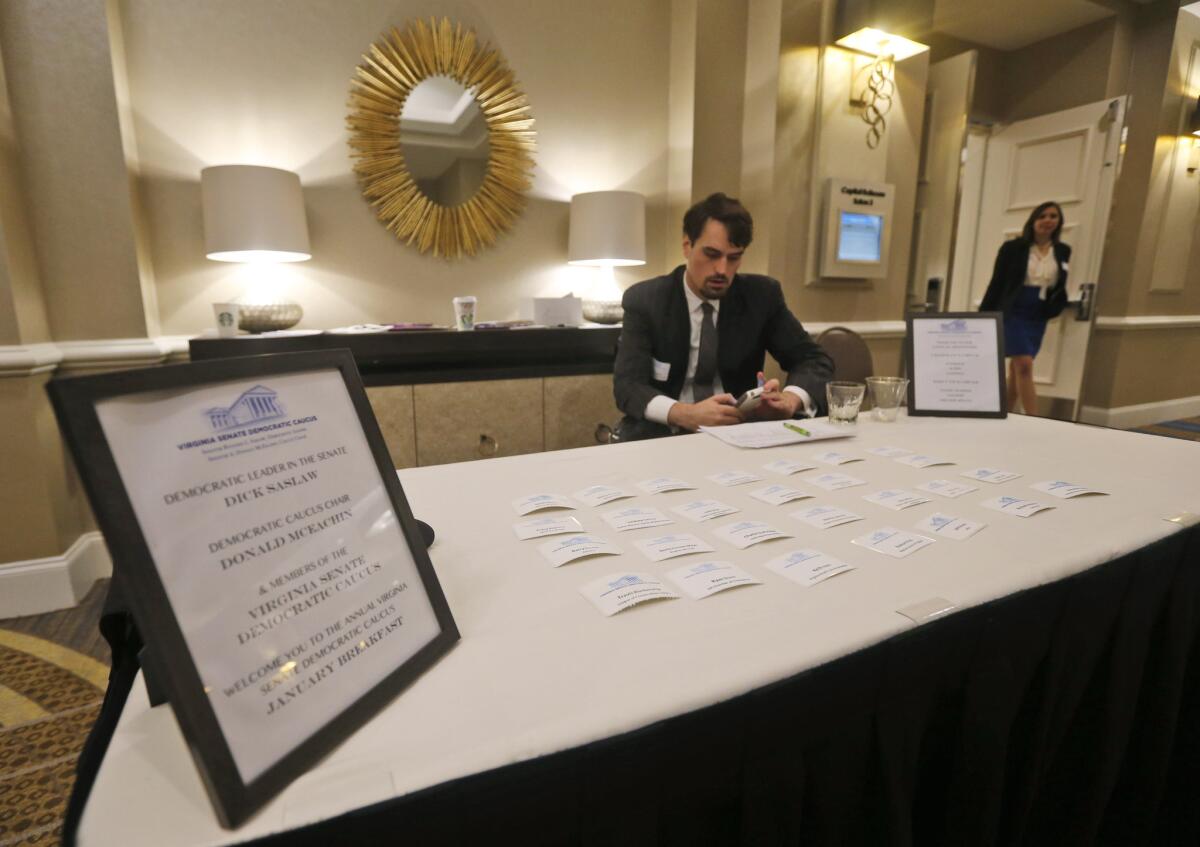Editorial: California needs to shine a light on lobbying

Senate Democratic aids staff a welcome table at the entrance to a closed fundraising breakfast.
Say you’re an executive of Big Widget Inc., a manufacturing company, and the California Legislature is considering a bill that would render the widgets you make obsolete.
You hire lobbyists to make the case to legislators that your widgets are crucial to the state’s economy and ought to be protected. But you want to pull out all the stops because there are other well-funded interests on the other side of the proposal. So, you hire another firm to launch an online campaign called Californians For Widgets, pretending to be a coalition of regular citizens and academics worried about the loss of widget manufacturing in the state. You hire people to set up social media accounts to undermine the claims of the legislation’s supporters. You appeal directly to voters through advertising and mailers. Maybe you even hire a well-known former politician to tout your position.
The rule change ... would make it harder for interests to hide their lobbying activities.
Under the current state rules, Big Widget must report the money it pays to lobby legislators directly and identify the firms it hires to do the lobbying. And it must report the total for “other spending to influence” — but not how it spends it. That allows Big Widget to hide its connection to the digital campaign it funded to influence lawmakers.
A proposal before the Fair Political Practices Commission Thursday would shine some light into this dark corner of the political world by requiring lobbyists, and the people and organizations that hire them, to itemize “other payments” of $2,500 and more. We urge the commission to adopt this rule change because, although the above scenario is hypothetical, the problem is real.
Special interests have increasingly used this catch-all category to limit disclosure of their lobbying efforts, making it near impossible for the average person to trace the nexus between them and an array of efforts to influence legislation. In 2014, nearly 70% of all lobbying money spent was reported under this category.
Western States Petroleum Assn. took advantage of this last year in the debate over a climate change bill that would have severely limited fossil fuel use in the state. In just three months, the oil industry group spent $6.7 million on lobbying — most of it in this category. The association created the California Driver’s Alliance, which sounded like a grass roots group of motorists, but wasn’t. We might have never known about the connection had WSPA not disclosed it on a related web site. Regardless, the campaign worked; the gasoline provision was taken out of the bill. And that’s just one example. Others using this category include the California State Council of Service Employees, which reported 79% of its lobbying money in 2014 as “other payments,” Chevron and the California Chamber of Commerce.
The rule change wouldn’t block this kind of spending, but it would make it harder for interests to hide their lobbying activities. Big Widget has the right to push its interests to lawmakers. But not to do it in secret.
Follow the Opinion section on Twitter @latimesopinion and Facebook
More to Read
A cure for the common opinion
Get thought-provoking perspectives with our weekly newsletter.
You may occasionally receive promotional content from the Los Angeles Times.






